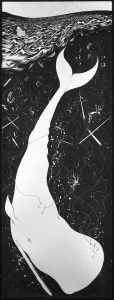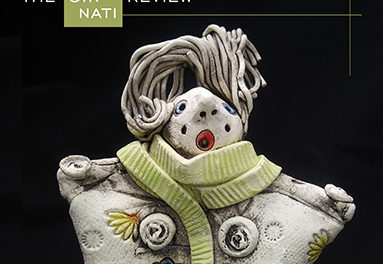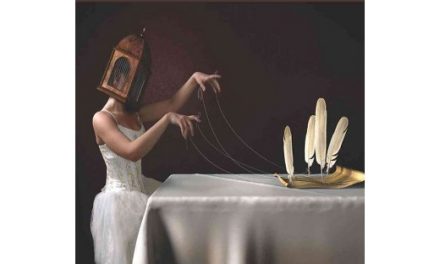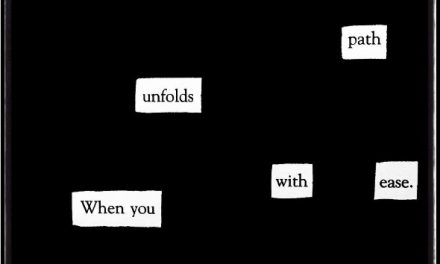It’s our pleasure to present another edition of Peteroy’s Irrelevant Questions for Relevant Writers, a blog feature in which Associate Editor Don Peteroy lobs a bit (or a lot) of ludicrousness, like a great white written spitball, at an author he admires, and the author bobs and weaves to avoid taking the sodden mass in the eye. This episode’s delightfully game target is Anne Valente. Coming at you, Anne! Cweappppppptttthhhhh [sound of written-spitball release].
 Question: You’re teaching an undergraduate novel-writing class. The first two students up for workshop hand in phonebook-sized manuscripts. At home, you begin to read the first one, and it’s not long before you realize the student has turned in an exact copy of Moby-Dick, word for word. You open the next manuscript, and the first line reads, “Call me Ishmael.” It’s another Moby-Dick. In class, you yell at the students, but they don’t know what you’re talking about. In Survey of British Lit, 1580-1700, you’d assigned The Taming of the Shrew. When you initiate conversation, the students start talking about homoeroticism as it pertains to Queequeg and Ishmael. You glance inside your copy of the Shakespeare play, and—it goes without saying—the entire text has been replaced by Moby-Dick. You then look in every book in your office. Kafka’s The Trial is about Ahab’s search for the whale. On the Road? A tale about whale hunting. Even Joyce Carol Oates’s entire oeuvre has become Melville-infected. And then you look in your own book, Our Hearts Will Burn Us Down. “Call me Ishmael,” it reads. Your publisher phones to discuss a new novel you’re working on. She says, “Look, Anne, I’ll be frank. I don’t know what the hell you’re trying to do. Let’s try something new, something inventive. I’ve had this idea floating around in my head, and you can take it and expand upon it if you wish. Okay, so this guy, Ishmael, ends up on this whaling boat with this crazy captain named Ahab. . . .” As she explains, you open your inbox. You’ve received a rejection from a literary magazine. The email reads: “We’re sorry, but your work does not suit our needs at the moment. We’re currently looking for fresh stories about a captain in search of a white whale…” In brief, describe the next twenty-four hours of your life.
Question: You’re teaching an undergraduate novel-writing class. The first two students up for workshop hand in phonebook-sized manuscripts. At home, you begin to read the first one, and it’s not long before you realize the student has turned in an exact copy of Moby-Dick, word for word. You open the next manuscript, and the first line reads, “Call me Ishmael.” It’s another Moby-Dick. In class, you yell at the students, but they don’t know what you’re talking about. In Survey of British Lit, 1580-1700, you’d assigned The Taming of the Shrew. When you initiate conversation, the students start talking about homoeroticism as it pertains to Queequeg and Ishmael. You glance inside your copy of the Shakespeare play, and—it goes without saying—the entire text has been replaced by Moby-Dick. You then look in every book in your office. Kafka’s The Trial is about Ahab’s search for the whale. On the Road? A tale about whale hunting. Even Joyce Carol Oates’s entire oeuvre has become Melville-infected. And then you look in your own book, Our Hearts Will Burn Us Down. “Call me Ishmael,” it reads. Your publisher phones to discuss a new novel you’re working on. She says, “Look, Anne, I’ll be frank. I don’t know what the hell you’re trying to do. Let’s try something new, something inventive. I’ve had this idea floating around in my head, and you can take it and expand upon it if you wish. Okay, so this guy, Ishmael, ends up on this whaling boat with this crazy captain named Ahab. . . .” As she explains, you open your inbox. You’ve received a rejection from a literary magazine. The email reads: “We’re sorry, but your work does not suit our needs at the moment. We’re currently looking for fresh stories about a captain in search of a white whale…” In brief, describe the next twenty-four hours of your life.
 AV: First, I pull from beneath my bed the Ouija board that’s been gathering dust since junior high. I dim the lamps, light some candles and incense. Even though Witchboard and The Exorcist and even the Hasbro instructions have all warned me not to play alone, I place my hands on the planchette and ask the ether of the living room, “Herman Melville, is that you?” The wind blows against the panes. The candlelight flickers. The spade-shaped indicator creeps slowly around the board, not toward the YES or NO at the top corners but instead around the letters until it spells a full sentence: IT IS I. My hands flinch away from the board. Herman Melville is in the room! I gather my thoughts and wonder what I can possibly ask him. I think of my students, the whale-filled manuscripts, the call from my publisher, the literary magazine rejection. My hands find the board. “What do you want from me?” I say to the room.
AV: First, I pull from beneath my bed the Ouija board that’s been gathering dust since junior high. I dim the lamps, light some candles and incense. Even though Witchboard and The Exorcist and even the Hasbro instructions have all warned me not to play alone, I place my hands on the planchette and ask the ether of the living room, “Herman Melville, is that you?” The wind blows against the panes. The candlelight flickers. The spade-shaped indicator creeps slowly around the board, not toward the YES or NO at the top corners but instead around the letters until it spells a full sentence: IT IS I. My hands flinch away from the board. Herman Melville is in the room! I gather my thoughts and wonder what I can possibly ask him. I think of my students, the whale-filled manuscripts, the call from my publisher, the literary magazine rejection. My hands find the board. “What do you want from me?” I say to the room.
The planchette flies quickly around, spells out the longest sentence I’ve seen since the board told me in junior high NO YOU WILL NEVER MEET TORI AMOS SORRY. I memorize the letters Melville gives me, decode them in my head. WHEN YOU READ MOBY DICK A FEW YEARS AGO YOU SKIMMED THE WHALING CHAPTERS AND I WANT YOU TO KNOW MORE ABOUT WHALE TAXONOMY AND BALEEN AND HARPOON ROPES.
Then the board goes silent. The wind stops blowing and the incense burns out. I set the board quietly inside its box, slide it back under the bed, and pull Moby-Dick off the shelf. It takes twenty-four hours to read all 663 pages, but by the following night, my eyes bloodshot with a lack of sleep, I know everything there is to know about the history of whaling and uses for whale oil and the difference between a humpback and a minke.
The next morning, my students submit manuscripts that don’t begin Call me Ishmael. We discuss The Taming of the Shrew. I receive a follow-up email from the lit mag saying submissions are closed for their whale-theme issue. I wonder for a few days if using the Ouija board alone will cause me to writing only of white whales, but Herman Melville never contacts me again.
Anne Valente’s first short story collection, By Light We Knew Our Names, won the Dzanc Books Short Story Prize and was released in September 2014. Her debut novel, Our Hearts Will Burn Us Down, is forthcoming from William Morrow/HarperCollins in 2016. She is also the author of the fiction chapbook, An Elegy for Mathematics. Originally from St. Louis, she is a faculty member in the Creative Writing Department at Santa Fe University of Art and Design.






